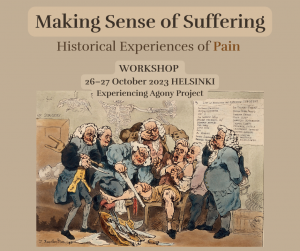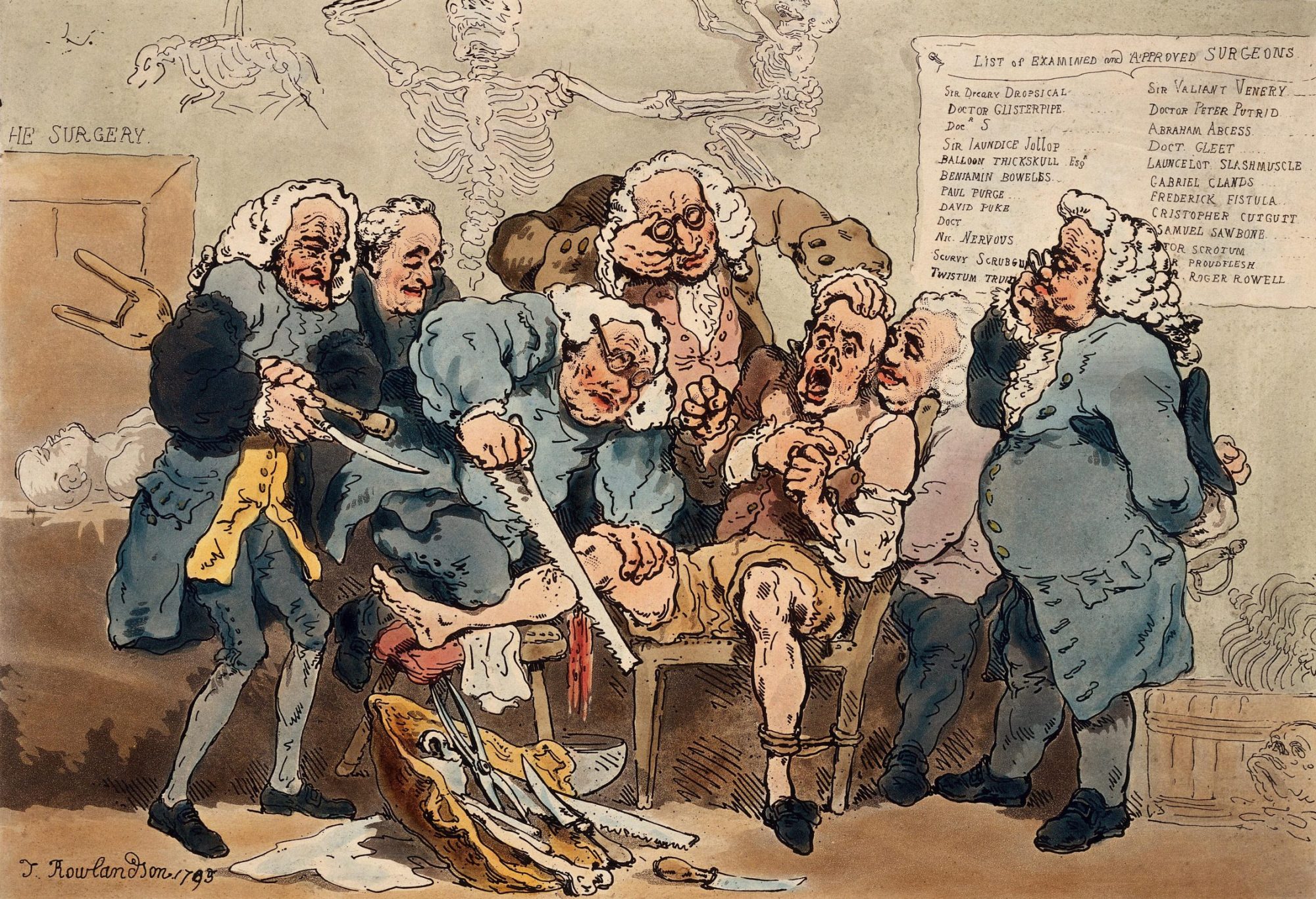WORKSHOP 1
Making Sense of Suffering – Historical Experiences of Pain
26-27 October 2023, University of Helsinki
Pain is born out of a combination of cultural, social, corporeal, and individual factors: it has not had the same significance for all people in all times at all places. The ambivalent role pain has played in medieval religious self-flagellation, childbirth both before and after anaesthetics, or modern BDSM practices reveal how humans’ relationship to pain is deeply situational and affected by their gender, age, culture, and religious and philosophical beliefs.
The Academy of Finland research project, Experiencing Agony: Pain and Embodiment in the British Atlantic World, 1600–1900 explores such questions in the Anglo-American world, hoping to uncover how social, cultural, and temporal change affected the embodiment of suffering on both an individual and social level. As an integral part of the project, we are launching a series of workshops to map out interdisciplinary approaches to the history of pain.
The first workshop approaches pain through individual experiences and descriptions. The workshop’s presentations question the dichotomy between sensory and emotional pain, as mental pain always has a physiological side to it (on a nerve/muscular/hormonal level), and physical pain always has a mental component (we diagnose, conceptualise, and try to understand it). Moreover, the workshop explores affective components which transcend the dichotomy between sensory and emotional, and the ways of extracting such often unverbalized aspects of pain from historical sources.

When and where?
26–27 October 2023
University of Helsinki, HCAS common room (Fabianinkatu 24, 3rd floor)
In collaboration with Helsinki Collegium for Advanced Studies and Academy of Finland
What is the programme like?
Thursday 26 October
10:30-11:00 Welcome and coffee
11:00-12:30 Session 1: Finnish experiences of pain
Raisa Toivo (Tampere University), Redemptive pain and punishment as bodily shared experience in seventeenth-century Finland
Kirsi Tuohela (University of Turku), Pain, Agony and Mental Illness (in 1930s Finland)
Mark Aitken (HCAS), Presence of Absence: Memory, Photography and Landscape
Chair: Clarice Säävälä
12:30-13:30 Lunch break
13:30-15:00 Session 2: Multidisciplinary approaches to agony
Henni Alava & team (Tampere University), Gendered Chronic Disease, Embodied Differences and Biomedical Knowledge (project GenDis)
Eva Johanna Holmberg & team, Presenting the project Experiencing Agony
Clarice Säävälä (University of Helsinki), Pain in Victorian Women’s Egodocuments
Chair: Daniel Blackie (Tampere University)
15:00-15:30 Coffee
15:30-17:00 Keynote: Rob Boddice (Tampere University), The Politics of Witnessing, or, The Other in Pain
Chair: Soile Ylivuori (University of Helsinki)
Friday 27 October
11:00-12:30 Session 3: Premodern suffering
Elina Pyy (Independent Scholar), At the intersections of pain and power: studying suffering in the ancient Graeco-Roman culture
Marika Räsänen (University of Turku), Sickness and suffering in late medieval Toulouse: The “Miracula” of Thomas Aquinas
Jenni Kuuliala (University of Turku), The experience of supernatural pain in early modern Italy
Chair: Eva Johanna Holmberg (University of Helsinki)
12:30-13:30 Lunch break
13:30-15:00 Keynote: Josephine Hoegaerts (Universiteit van Amsterdam), Becoming Dysfluent: Complaints for Historians’ Ears
Chair: Anu Korhonen (University of Helsinki)
15:00- Concluding drinks
